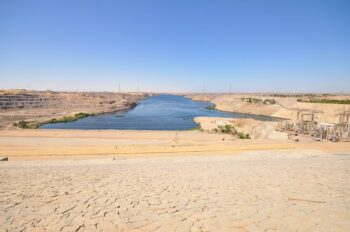Shouro Dasgupta

Shouro Dasgupta is currently a Researcher at Fondazione CMCC and a Lecturer at Università Ca’ Foscari Venezia. His research contributes to advancing knowledge on socioeconomic impacts of climate change, identifying hotspots and vulnerable populations, and supporting the design of tailored policies to mitigate and adapt to climate impacts. Shouro teaches courses on Statistics, Economics, and Econometrics courses at Università Ca’ Foscari Venezia. He is a co-author of the Lancet Countdown, which addresses climate change impacts, exposures, and vulnerability. Shouro leads the labour impacts sector of Inter-Sectoral Impact Model Inter-comparison Project (ISIMIP) and a taskgroup on adaptation in labour impacts for PROCLIAS COST Action.
Background
Originally from Bangladesh, Shouro holds a PhD in Science and Management of Climate Change from Università Ca’ Foscari Venezia and an MA in Economics from the University of New Hampshire. He has previously worked for Fondazione Eni Enrico Mattei and the International Finance Corporation.
Research interests
- Climate change impacts on labour, food security, health, and inequality
- Socioeconomic vulnerability
- Adaptation in climate impacts on labour
- Socioeconomic impacts of COVID-19 pandemic
Research
Research - 2025
Authored by 128 multidisciplinary experts worldwide, the 2025 report of the Lancet Countdown on health and climate change is the ninth—and most comprehensive— assessment of the links between climate change and health. Read more
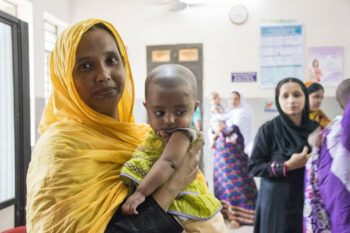
This study quantifies the impacts of heat stress on the UK labour force, focusing on labour supply, labour productivity, the health of workers, and how adaptation is reducing the negative impacts. Read more

Research - 2024
The 2024 small island developing states (SIDS) report for the Lancet Countdown on Health and Climate Change expands on the global Lancet Countdown 2023 and 2024 reports to explore the unique contexts, geographies, vulnerabilities, and needs that shape the evolving links between health and climate change in small island developing states. Read more

The authors of this paper explore the extent to which heat stress affects the labour force and discuss the corresponding occupational health and economic impacts. Read more

The latest Lancet Countdown report reveals the health threats of climate change have reached record-breaking levels. Read more

Mainstream model-based assessments are often silent on the interplay between climate change and economic inequality. The authors of this paper aim to fill this gap through an ensemble of eight large-scale integrated assessment models that belong to different economic paradigms and feature income heterogeneity. Read more

The authors of this paper combine high-resolution climatic data with a dataset on infant and child mortality, wasting, and stunting, from more than a hundred countries, to estimate the effects of both gradual and acute climate change, focusing on drought and heatwaves, to plausibly attribute changing child health outcomes to historical climate change. Read more

This new report tracks 42 indicators highlighting the negative impacts of climate change on human health, the delayed climate action of European countries, and the missed opportunities to protect or improve health with health-responsive climate action. Read more
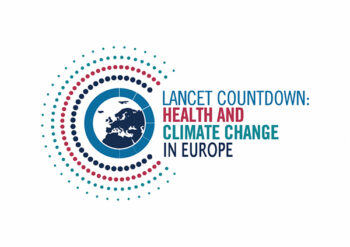
Building from the first report, the 2023 report of the Lancet Countdown Latin America, presents 34 indicators that track the relationship between health and climate change up to 2022, aiming at providing evidence to public decision-making with the purpose of improving the health and wellbeing of Latin American populations and reducing social inequities through climate actions focusing on health. Read more
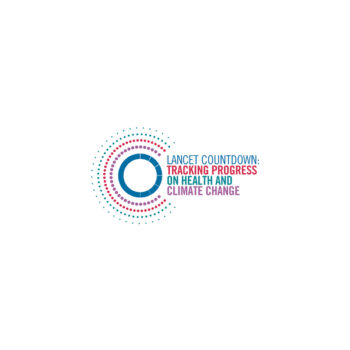
Research - 2023
This report includes contributions from Shouro Dasgupta and Elizabeth Robinson which focus on the relationship between food insecurity and increasing heatwaves and droughts. Read more

The authors of this paper investigate the relationship between temperature and inequality in South Africa at the national and sub-national level. Read more

The authors of this paper propose a novel framework for COVID-19 vaccine allocation based on three components of Vulnerability, Vaccination, and Values (3Vs). Read more

It is now clear that anthropogenic climate change is having a negative impact on human health. In this paper, we... Read more

The authors of this people propose a framework for the co-production of policy-relevant indicators and decision-support tools that track past, present, and future climate-induced disease risks across hazard, exposure, and vulnerability domains at the animal, human, and environmental interface. Read more

The authors of this paper conduct a macro-economic assessment of the climate change impacts on energy demand at the EU sub-national level by considering twelve types of energy demand impacts, which refer to three carriers (petroleum, gas, and electricity) and four sectors (agriculture, industry, services, and residential). Read more

The authors of this paper show that with medium estimates for damage functions, global damages are in the range of 10% to 12% of GDP by 2100 in a baseline scenario with 3 °C temperature change, and about 2% in a well-below 2 °C scenario. Read more
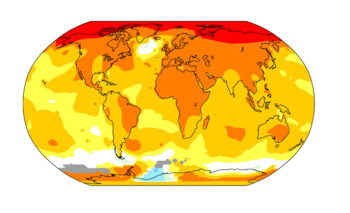
By integrating climate and health information, climate services for health provide robust decision-support tools. The Lancet Countdown monitoring system uses global climate reanalyses products to track annual changes in a set of health-related outcomes. Read more

With improved understanding of the complex links between labour, health, and output, policies can be better designed to protect workers, especially vulnerable groups of workers, such as outdoor workers, and enhance economic output and economic growth. Read more

Research - 2022
Mirroring the Global Lancet Countdown, this report monitors the health effects of climate change and the health co-benefits of climate action in Europe. Read more

The Lancet Countdown is an international collaboration that independently monitors the health consequences of a changing climate. Publishing updated, new,... Read more

This paper assesses the feasibility and robustness of an index-based insurance scheme against hydrological droughts under climate change. Read more

The authors of this paper develop a structural model to study the long-term impacts of climate and socioeconomic changes on labour supply and the pay gap between male/female and high-skilled/low-skilled labour. Read more

This research in practice article is a reflective narrative documenting how we have developed CCIEVIs as a discrete set of quantifiable indicators that are updated annually to provide the most recent picture of climate change’s impacts on human health. Read more

The authors of this paper investigate the extent to which current changes in food insecurity can be plausibly attributed to climate change. They combine food insecurity data for 83 countries from the FAO food insecurity experience scale (FIES) with reanalysed climate data from ERA5-Land, and use a panel data regression with time-varying coefficients. Read more
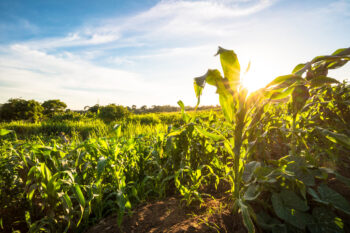
This is the first paper to track food insecurity and its determinants during the pandemic using multi-country and multi-wave evidence. Read more

Policy
Policy - 2025
This report provides practical next steps for better protecting workers against the effects of high temperatures, informed by a 2,000-person survey and an expert roundtable. Read more

Policy - 2024
This is a response to an open consultation on proposed reforms to the National Planning Policy Framework and other changes to the planning system. Read more

This policy brief highlights priority areas for actionable advances in improving food security, nutrition and child health in Burkina Faso in the context of a changing climate. Read more

This policy brief examines the challenges Bangladesh faces and the trajectory of policy in this area, and considers how the agriculture sector can contribute to climate change mitigation. Read more

Policy - 2023
This policy brief explores how climate change is impacting the health of the population in Bangladesh through multiple pathways. Read more

This report consists of a submission to the call for evidence by the Environmental Audit Committee on heat resilience and sustainable cooling. Read more

This policy brief examines the physical and socioeconomic factors that make Bangladesh so vulnerable to flooding, especially in a changing climate, and how it might respond better in the future. Read more

The health and productivity of the workforce in Bangladesh are under increasing threat in a warming world. This policy brief considers how policymakers can better ensure workers are protected from extreme heat while pursuing sustainable development pathways and a just transition to a low-carbon economy. Read more
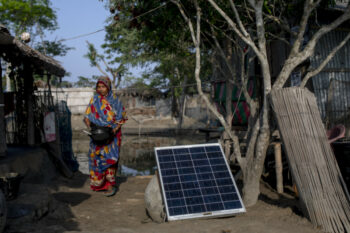
This report consists of written evidence to the UK Parliament Environmental Audit Committee’s inquiry on environmental change and food security. It states that UK’s Food Strategy of 2022 does not sufficiently factor climate risks into building resilient domestic food supply chains and suggests measures that the Government could take to increase food security while providing climate mitigation and health co-benefits. Read more

Policy - 2022
This publication includes contributions from Shouro Dasgupta and Elizabeth Robinson who were indicator authors for heat and food insecurity. Read more
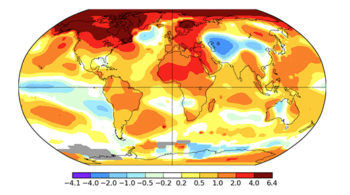
This report draws on knowledge developed for the European Climate and Health Observatory. It focuses on the impact high temperatures are having on the population, as well as another emerging threat: the spread of climate-sensitive infectious diseases. Read more

News
News - 2025
On World Food Day, former master’s students of the Climate Food (In)security Lab at the Grantham Research Institute explain how food security is defined and highlight how climate change is already worsening our food and nutritional security. Read more

News - 2024
This feature article considers the some of the reasons for the spike in prices of certain food products during 2024.... Read more

News - 2023
This article outlines the health impacts of climate change and includes quotes from Shouro Dasgupta and Elizabeth Robinson. Nature, 1... Read more

The Lancet Regional Health – Europe journal published a scientific paper on 7 August 2023 authored by a distinguished team... Read more
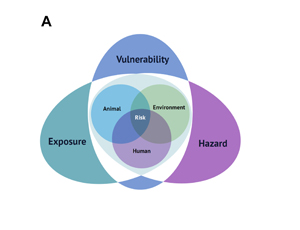
The health and productivity of the workforce in Bangladesh is under increasing threat in a warming world. In this commentary,... Read more
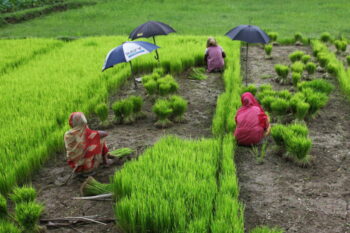
News - 2022
This news clip features a presentation on the Lancet Countdown 2022 Report launch in Bangladesh. Read more

Elizabeth Robinson and Shouro Dasgupta reflect on the impact climate change is already having on child health and nutrition in Egypt, the COP27 Presidency, and the extent to which child health outcomes will worsen if greater efforts are not made to limit global temperature increases. Read more
